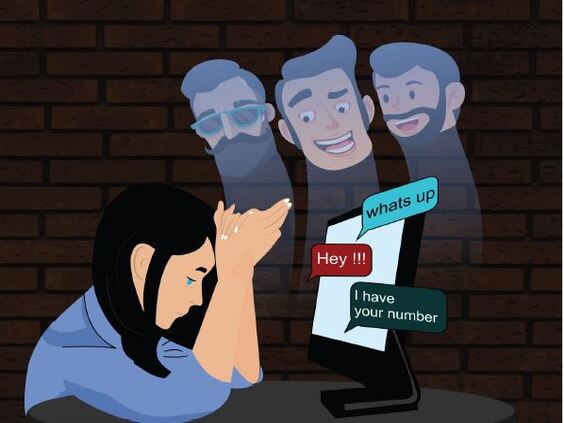

Ramzan is a sacred time of reflection, giving, and devotion. But in today’s digital age, even this holy month isn’t free from the shadows of cybercrime. Fraudsters exploit emotions, urgency, and generosity by circulating fake “Free Ramzan Ration” messages—targeting people’s faith to fuel their scams.
As protectors of society, policemen must be extra vigilant—not just on the ground, but also in the digital landscape. You are not just frontline defenders against physical crimes anymore, but also the first line of awareness and response against cyber threats.
Let’s break down this trending scam, how it works, why it’s dangerous, and how to educate citizens to stay safe.
What is the “Free Ramzan Ration” Scam?
This scam involves fraudsters sending out messages through WhatsApp, SMS, or social media, claiming that the government, NGOs, or wealthy individuals are distributing free ration kits for Ramzan.
The message typically contains:
- A clickable link
- Instructions to “register quickly”
- An appeal to “forward to 10 others to claim the reward”
Victims who click the link are taken to phishing websites, infected with malware, or manipulated into giving out personal details.
Why Policemen Should Be Concerned
1. Cybercrime is Rising
According to the National Crime Records Bureau (NCRB), India recorded over 65,000 cybercrime cases in 2023, a 24% increase from the previous year. A significant portion of these crimes involve financial fraud and phishing scams.
2. People Trust Uniforms
Citizens still look to police officers as trusted advisors. When cyber frauds rise, it’s your words, your social media posts, your offline sessions that can build awareness and save lives.
3. Cybercrime Has a Real-World Impact
What begins as a digital message ends in real-world suffering—bank accounts emptied, phones hacked, victims blackmailed, or even lives destroyed due to leaked personal data.
How the Scam Works – The Fraudsters' Modus Operandi
Let’s decode the common playbook these scammers follow:
Step 1: Emotional Bait
Messages target the sentiment of charity and need during Ramzan. “Get your free ration kit today – limited time!”
Step 2: The Click Trap
Victims are directed to a fake landing page with a government logo or professional design. They’re asked to fill in personal details.
Step 3: Data Harvesting / Malware Attack
The site captures personal data or prompts a download, which installs malware or spyware.
Step 4: Further Exploitation
This can lead to:
- Bank fraud
- SIM swap attacks
- Ransomware
- Blackmail with stolen personal photos
Red Flags Policemen Should Help Citizens Spot
Educate people to look for the following warning signs:
|
Red Flag |
What It Means |
|
Offers too good to be true |
Real help rarely comes with flashy language or conditions |
|
Urgent tone |
“Apply in 10 minutes or lose your chance” = scam |
|
Odd or suspicious links |
URLs like govt-ramzan-free.com instead of gov.in |
|
Poor grammar or spelling |
Most scams are poorly translated |
|
Requests for sensitive info |
No real organization asks for bank details via text |
|
Forced sharing |
“Forward to others to activate offer” – a common fraud tactic |
What Policemen Can Do: Action Plan to Fight This Scam
1. Public Announcements in Mosques and Marketplaces
Use loudspeakers, beat duty rounds, or community events to issue offline alerts in local languages.
2. WhatsApp Status & Social Media Posts
Leverage police station accounts to share verified graphics like:
NO FREE RATION SCHEME is offered online. Don’t click on any unknown links. Report such messages to 1930 or cybercrime.gov.in.
3. Involve Local Influencers & Clerics
Get mosque committees and community leaders to make announcements or Friday sermons warning about the scam.
4. Put Up Posters in Ramzan Bazaars
Design simple posters with visuals and red flags listed in bullet points. Put them near:
- Grocery stores
- ATMs
- Pharmacies
- Mosques
5. Conduct Awareness Drives in Schools and Colleges
Organize a short 30-minute session with students—they’re often the first to see these messages and can warn parents and elders.
Cyber Hygiene Tips to Share With the Public
|
DO |
DON’T |
|
Visit only verified government websites |
Click unknown links from messages |
|
Use official bank or NGO contact numbers |
Download unknown apps or files |
|
Report fraud immediately to 1930 or cybercrime.gov.in |
Delay action after noticing a scam |
|
Install updated antivirus on mobile phones |
Share personal info with strangers |
|
Verify any offer through local administration or known NGOs |
Forward any message without confirmation |
Case Study: Victim in Hyderabad Lost ₹38,000
In 2023, a 35-year-old woman from Hyderabad clicked on a link offering free ration. After entering her Aadhaar number and bank details, she noticed ₹38,000 withdrawn in two transactions. The cyber cell traced the scam to a fraud ring operating out of Jharkhand.
Had she known the signs and reported it earlier, the damage could have been minimized.
Final Thoughts for Policemen
You are the first line of defense not just against crime—but misinformation, emotional manipulation, and digital exploitation.
This Ramzan, make it your mission to protect not just the roads, but also the routers. Every officer can stop a cybercrime—not by using a baton, but by using their voice, presence, and social reach.
Cybercriminals don’t need guns—they just need your trust. In the digital world, awareness is your best armor.
Cyber Hygiene Foundation
- CyberAwareness CyberSafety
You May Also Like It
Understanding the Growing Threat of Loan Frauds Loan frauds have become
In your role as protectors of law and order, you
Leave A Comment
Don’t worry ! your e-mail address will not published.








0 Comments